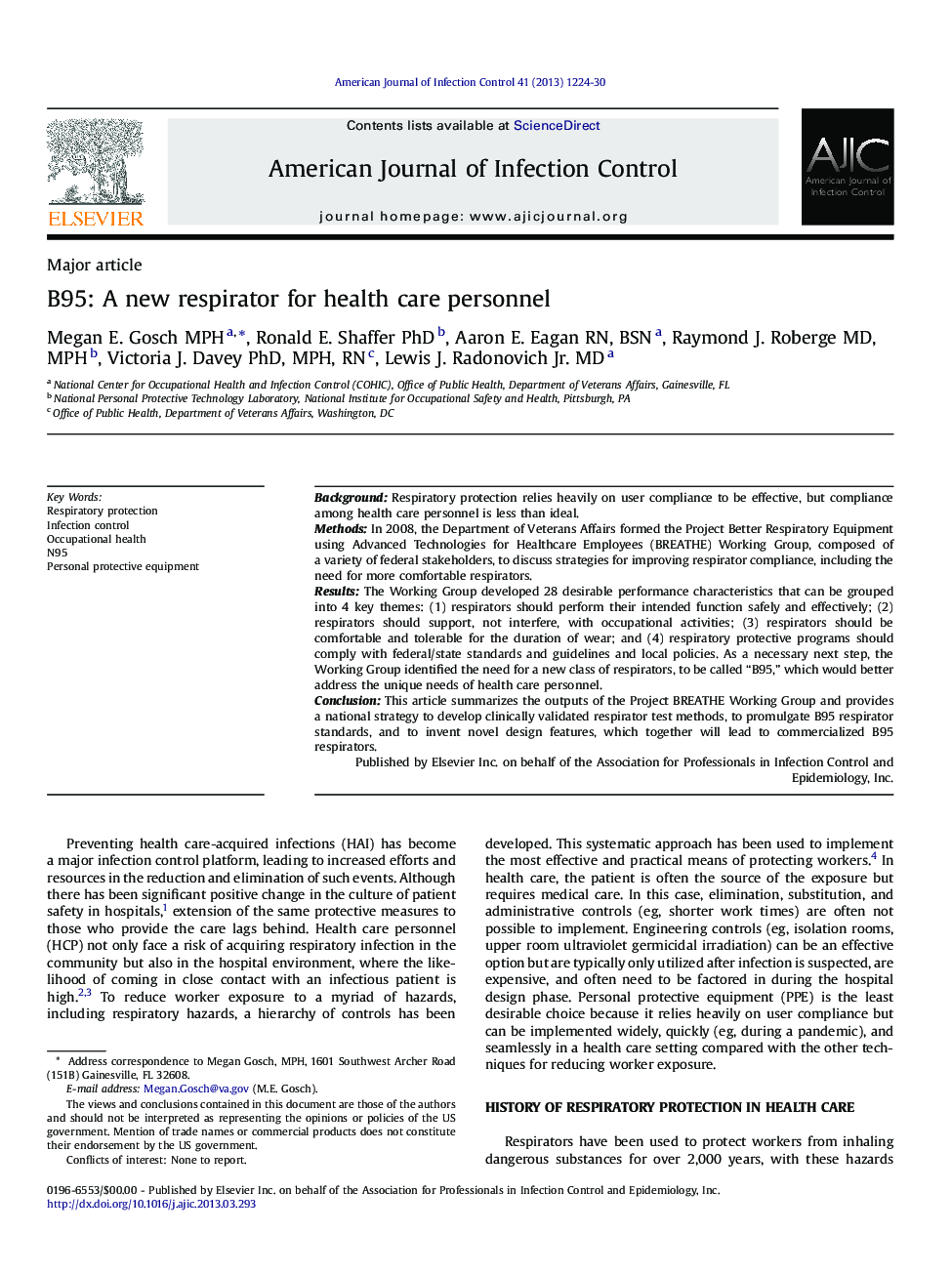| Article ID | Journal | Published Year | Pages | File Type |
|---|---|---|---|---|
| 2637110 | American Journal of Infection Control | 2013 | 7 Pages |
BackgroundRespiratory protection relies heavily on user compliance to be effective, but compliance among health care personnel is less than ideal.MethodsIn 2008, the Department of Veterans Affairs formed the Project Better Respiratory Equipment using Advanced Technologies for Healthcare Employees (BREATHE) Working Group, composed of a variety of federal stakeholders, to discuss strategies for improving respirator compliance, including the need for more comfortable respirators.ResultsThe Working Group developed 28 desirable performance characteristics that can be grouped into 4 key themes: (1) respirators should perform their intended function safely and effectively; (2) respirators should support, not interfere, with occupational activities; (3) respirators should be comfortable and tolerable for the duration of wear; and (4) respiratory protective programs should comply with federal/state standards and guidelines and local policies. As a necessary next step, the Working Group identified the need for a new class of respirators, to be called “B95,” which would better address the unique needs of health care personnel.ConclusionThis article summarizes the outputs of the Project BREATHE Working Group and provides a national strategy to develop clinically validated respirator test methods, to promulgate B95 respirator standards, and to invent novel design features, which together will lead to commercialized B95 respirators.
